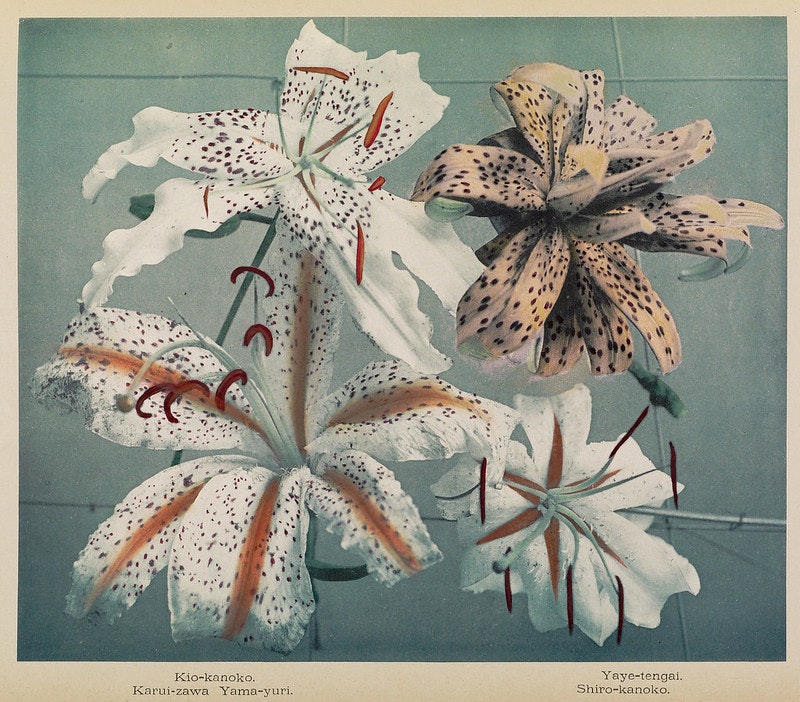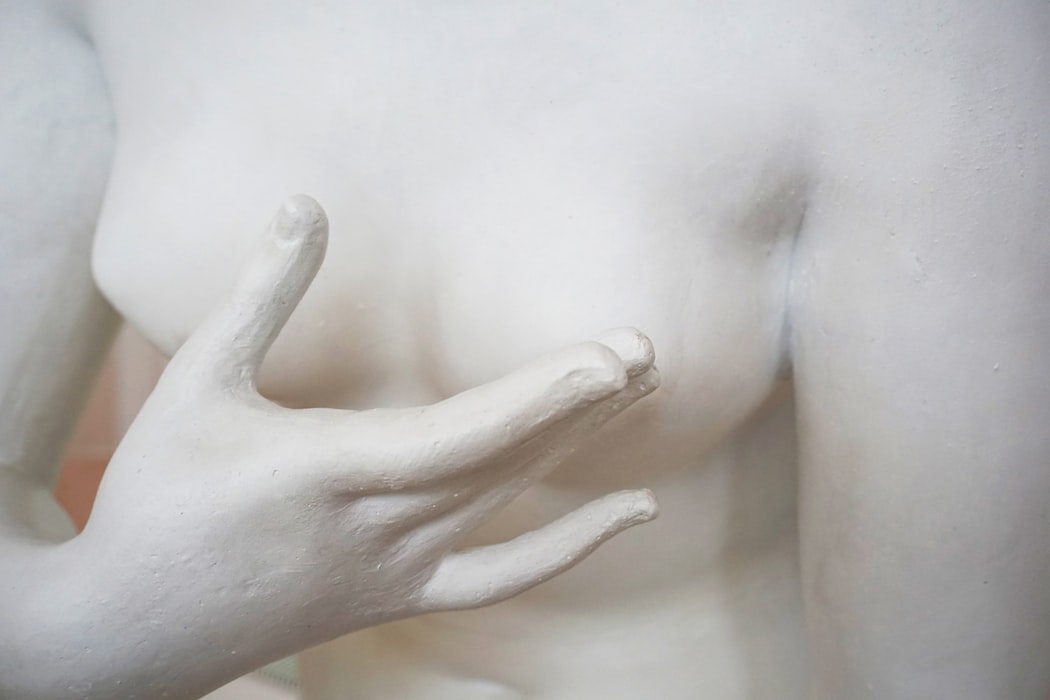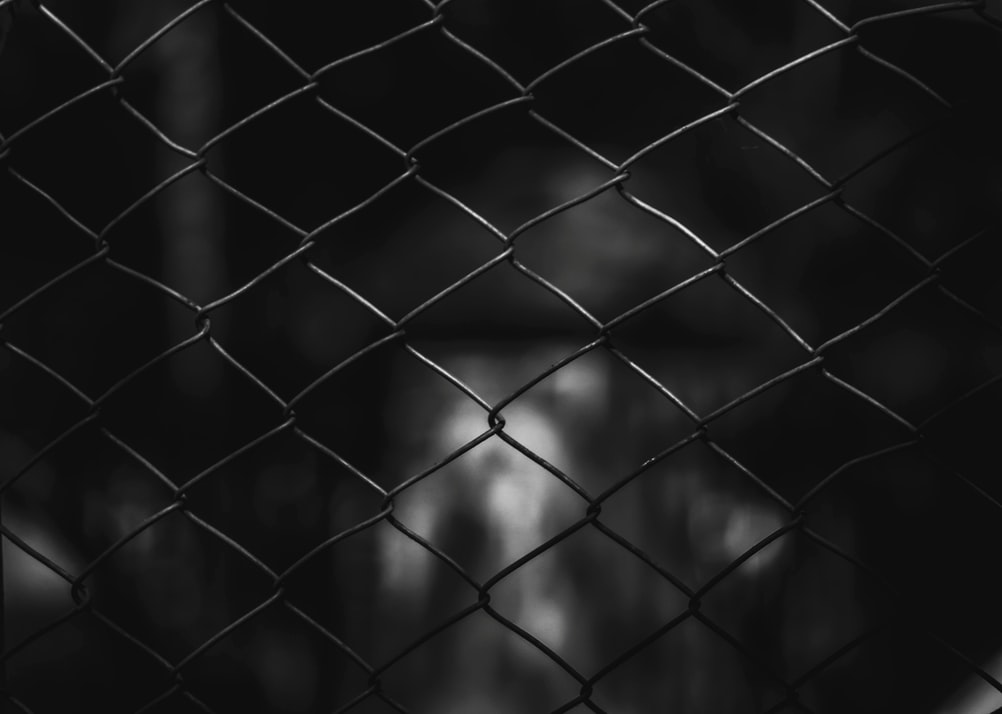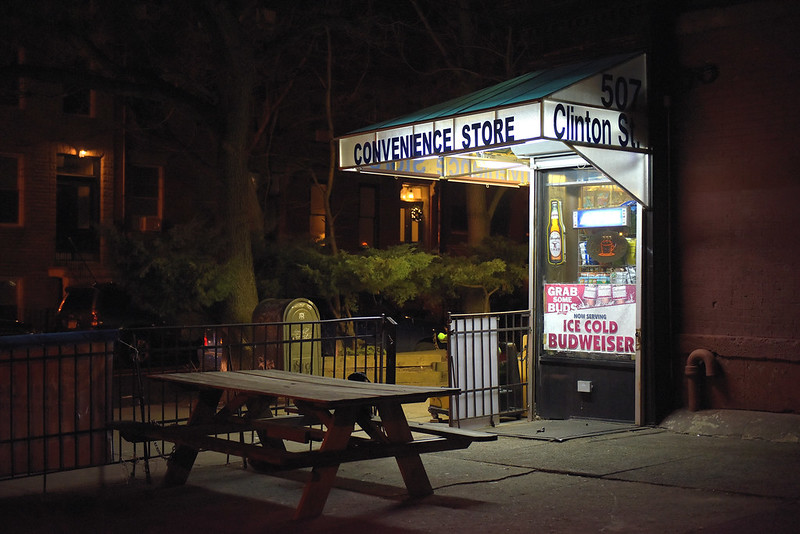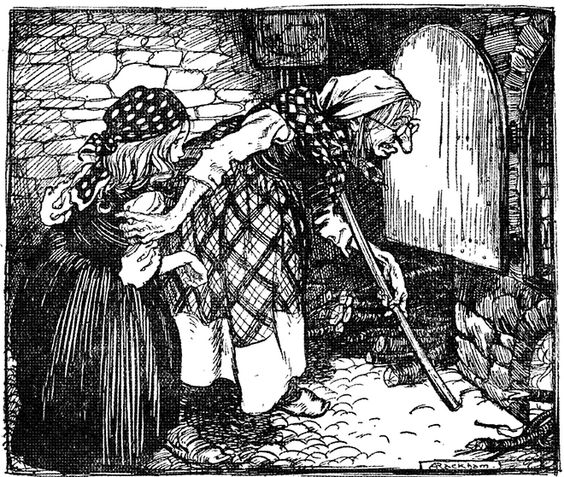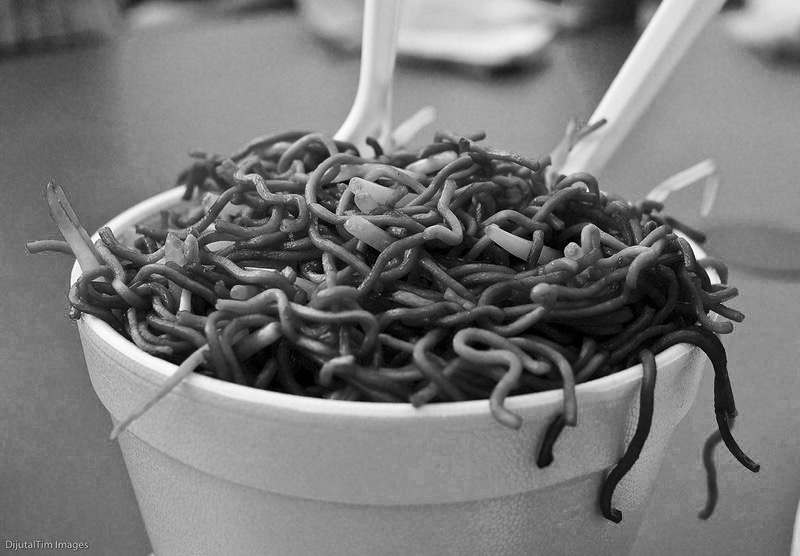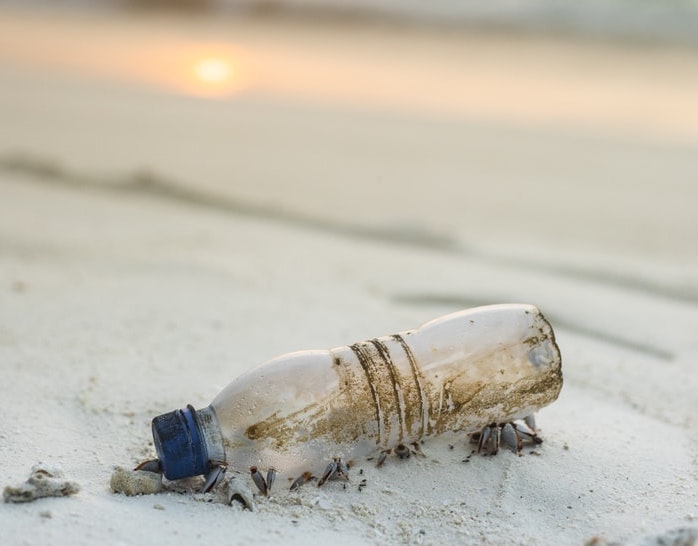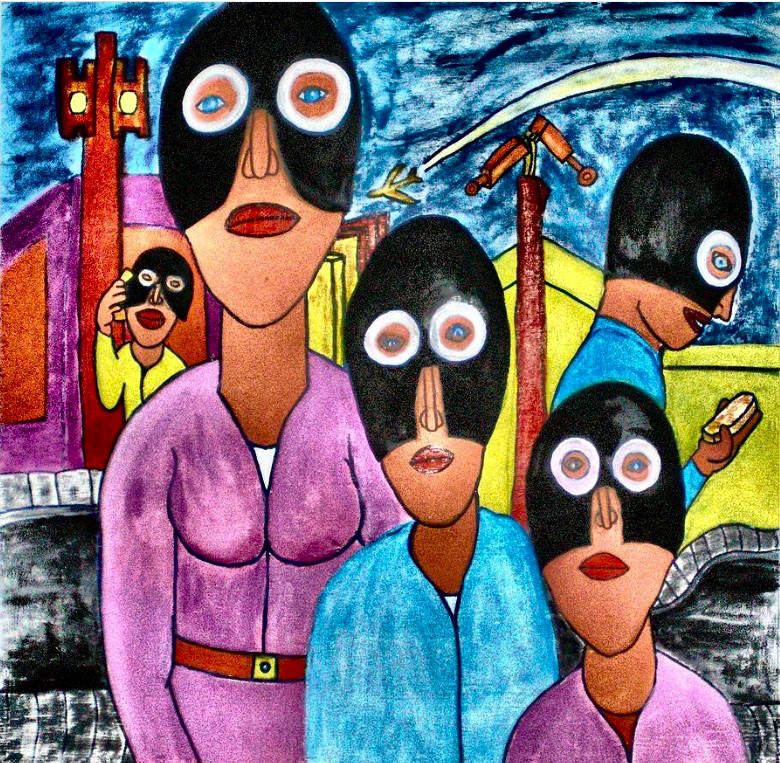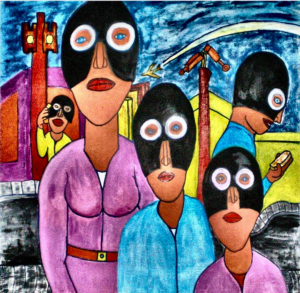Clutching at the Last Straw
By Dini Armstrong
After consulting with the elders, they chose to buy Oideacha, approaching life on this tiny Scottish island with all the naivety and determination of youth. Quaker values still rang true to them when they signed on the dotted line: peace, simplicity, integrity, stewardship of the earth. Hamish had years of experience volunteering on building projects in Malawi, so he took on the lion’s share of any construction work—using reclaimed materials whenever possible. Maria covered the roof with grass and sowed wildflower seeds. The inside of their little hobbit house was deceptively spacious, with water and heating provided by an air source heat pump. They used fleece insulation, 95 percent of which consisted of recycled plastic bottles. Triple-glazing and the use of A-rated kitchen appliances further lowered their carbon footprint. Maria procured a boat that was made from recycled plastic litter. Their secret shame was a four-stroke outboard motor, but the mainland was too far to row the distance.
The young couple soon found their rhythm. Each day began by feeding three sheep, a goat and five chickens. Next on the schedule were gardening, cleaning and renovating. They were hoping to grow organic vegetables within a year. After dinner, they went for a stroll along the beach. It took roughly two and a half hours to circle the island, especially as they brought empty burlap bags to collect plastic litter, washed in by the tide. They found soda bottles, torn shopping bags, drinking straws, food cartons, a surprising amount of tampon applicators, even a plastic leg.
On Sundays, they travelled to the mainland, attended Meeting and did some shopping. Hamish, with the strength of an ox and a fiery red beard, might as well have come over on a longboat. Maria, not petite, felt dainty next to him. Although she fiercely loved their little paradise, her Maltese skin was riddled with midge bites and she ached for sunshine.
Weeks into their stay, on discovering an article in The Guardian, she let out a high-pitched yelp.
Scientists accidentally create mutant enzyme that eats plastic bottles
The breakthrough, spurred by the discovery of plastic-eating bugs at a Japanese dump, could help solve the global plastic pollution crisis.
Six months later, like children waiting for Santa, too excited to sit down, they hovered in front of their laptop, balanced precariously on the edge of the kitchen counter, where WiFi reception was most reliable, awaiting a special broadcast by King Charles.
“God, he looks old,” Hamish blurted out when the first picture appeared.
“Ssshhhh!” Maria hissed, her eyes fixed on the screen.
“Twenty-twenty has been a sad year for us all,” the monarch began, his voice heavy with solemnity, “The United Kingdom was cruelly robbed of her beloved Queen, my mother.” He wiped an invisible tear from the corner of his eye, took a sip of water and continued.
“But it has also been a year of beginnings and a year of discovery. Scientists all over the world have worked tirelessly to bio-engineer bacteria—as well as fungi—capable of producing an enzyme that can break down even the most resistant plastics into their base components. One might say it was their PET-project.” He paused and allowed for any laughs. “For this thrilling breakthrough, we owe our deepest gratitude.”
He drifted off into an expansive, upper-crust version of “I told you so,” in which he recounted all the decades of his own personal crusade against plastic litter – among other environmental pollutants. At this point, Hamish began to embrace Maria from behind, gently kissing her neck. She could feel her body relax against his, when King Charles declared:
“We have all seen them over the years—videos of whale carcasses being cut open, releasing tons of plastics that the poor gentle giants ingested, photos of seagulls, dying with their wings twisted in plastic netting, turtles, trapped in ghost nets. All this will be a thing of the past, like the monstrous torture instruments in the Tower museum. Which is why we feel we are ready to release these clever little bacteria into the oceans—and to set free these glorious spores into the atmosphere. May they help mankind atone for their sins against nature!”
Roaring applause could be heard, although, considering he was still in a studio, it was unclear where this originated.
Hamish turned Maria around and kissed her, gently at first, hovering a few millimetres away as if seeking permission before touching the softness of her lips, and she responded with increasing enthusiasm. When he lifted her up onto the kitchen counter and slowly pulled down her knickers, neither bothered bringing up the issue of a condom. With Hamish’s tongue expertly teasing her sweet spot, Maria whispered, “Maybe.”
Within eight weeks, they found less and less litter during their circadian walks around the island. Joyous disbelief was gradually replaced by a solemn gratitude for witnessing history in the making, an evolution in reverse, until, finally, they found their last straw. Just when Hamish felt sure he had reached a pinnacle of happiness, Maria broke the news of her pregnancy. He lifted her up high, twirled her around and kissed her over and over.
“I have to show you something,” he declared, and she noticed he was blushing with pride. He took her hand and practically dragged her back home and into the garden shed. In the corner stood a cradle, made from driftwood. Pieces of sea glass, suspended as a mobile, gyrated and refracted the sunlight into tiny rainbows.
Rendered speechless, Maria caressed every intricate detail, every curve—when she found herself on the ground, her face pressed beneath Hamish’s chest. All hell broke loose around them. Tools fell from their hooks. Outside, something hit the ground with a heavy thud, then a violent shattering, again and again —more than something, many things, in almost perfect synchronicity. When the noise began to die down, she tried to wriggle.
“Are you okay?” he asked.
“I will be when you get off, you big oaf.”
Hamish let out a sigh and reluctantly obeyed. He squinted and blinked.. Tears streamed down his cheeks; his eyelids were red and swollen. “I think my contacts shifted, I can’t see a thing,” he muttered. His hair and back were covered in fine powder. She drew a deep breath and began to cough. It smelled of mushrooms. Not unpleasant like mold in a cellar, but more akin to the perfume of a freshly cut chanterelle from the forest.
“What in the …” She pointed through the open door of the shed. “The windows!”
Maria ran towards the house. Hamish tried to stumble after her, but soon capitulated and remained in one spot, rubbing his eyes. The triple-glazed panels lay in shards on the ground. Glass only, no frames. Following a hunch, Maria stretched up to a windowsill and sniffed. Ice-cold sweat trickled down the back of her neck.
“It’s mushro—” The words stuck in her throat when she turned and saw Hamish. From the corner of his eyes, two vertical red lines marked his face like war paint.
“Come on, let’s get you inside and cleaned up, you mucky pup,” she said. She was unsure why she did not mention his eyes. He nodded, and, fighting through a treacle pit of dread, they made their way inside, arm-in-arm.
The sofa had collapsed into an empty shell—draped with blankets. Water was gushing from the cupboard under the kitchen sink. The scent of chanterelle was competing with the fetid stench of sewage, wafting up through cracks in the floorboards. Hamish’s shirt started to disintegrate and fell off his torso in patches. Maria’s vegan shoes dissolved, leaving only shoelaces, draped over her socks like a bizarre pair of earthworms, still in the crisscross patterns they were threaded into, a bow at the top.
“The light switch is gone,” she mumbled weakly. Even if WiFi and electricity had survived, their laptop no longer had keys. With a faint flicker of hope, she moved towards the telephone, but, like an intricate little sand sculpture, it disintegrated on first touch.
They stood in silence. The chanterelle air was thick with dust and fear.
“Check the boat, I’ll find something to rinse my eyes,” Hamish stated as if suggesting a shopping trip.
She left him standing. Away from the house, the garden looked almost normal, and she could pretend to herself that all was well. The greenhouse finished, they had planned to buy seeds on their next trip. Walking towards the pier, she savoured every step as a prisoner might, on the way to execution. All that was left of the boat was a hemp dock line, still secured to the piling with a cleat knot.
Back at the house, Hamish was crouching on the floor, an empty glass bottle in his hand. The war paint was gone, but his eyes were shut. He did not ask her about the boat.
“How about the pantry,” he enquired, his composure betrayed by a tremble in his voice. They had only ever planned a week in advance.
Thankfully, all food cans seemed intact, as did six jars of homemade preserves Hamish’s mum had forced on them last autumn. Juice and long-life milk, kept in tetrapacks, had leaked onto the shelves below, spoiling both flour and sugar packs. All fridge and freezer items lay on the glass shelves, contaminated by the remains of their plastic containers.
“There’s loads,” she shouted, “We’re fine!”
It was weeks before the first signs of malnutrition sneaked up on them in the disguise of fatigue, depression and poor concentration. Lack of fresh vegetables caused constipation; they were chilled to the bone. Hamish remained blind, and puss was oozing out from under his eyelids. Both had been vegetarians since childhood, leaving them without the faintest notion of the intricacies of fishing. There was no nylon to use as a line. They had heard of some cultures using animal gut, but both agreed they would never steep as low as to harm their livestock. Maria tried to use a makeshift spear, but in her condition, did not want to risk wading in too deeply. Rather than produce the fast results they had seen in castaway movies, her attempts consumed the last of her energy.
Three months in, Maria felt the baby stir inside her, a faint bubble at first, then more decisive kicks. She did not tell Hamish. Lately, his large frame, once so attractive, had become a source of concern to both of them. He tried to pretend he could last on the same portions as she, but both knew better. His ginger mane fell out in clumps. In a trance, she used a kitchen knife to slit her goat’s throat, but without the protective plastic handle, it slipped, cutting her hand. The wound was not healing.
•
Shielding her eyes from the evening sun, she raises her hand, wrapped in dirty strips of cloth. She cannot remember who suggested the trip to the mainland first. All she knows is Hamish is out there, floating towards a shore he will never reach. She takes one last look at the crystal-clear ocean—then turns back to home.
Dini Armstrong, now Scottish, has worked in journalism and psychology. She is currently completing an MA in Creative Writing and has published short stories and flash fiction. Her pithy style got her into trouble from age six, when, after writing a particularly seditious piece about a vengeful cat with explosives, she promised never to write again. She lied.
Visit Dini’s website at DiniArmstrong.com, and follower her on Facebook, @GermanScotsAuthor, and Twitter, @ArmstrongDini.
Photo by Ishan @seefromthesky on Unsplash.


